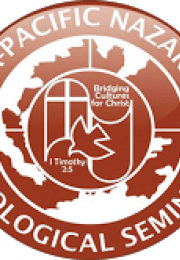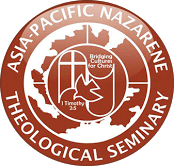- Resource Types
- Resource Languages
- Institutional Repository
 Visit the home page
Visit the home page
About Site Language
WHDL is viewable in multiple languages. Use the pull-down menu to select a language to view the site.
I changed my language, but I’m still seeing resources in the other languages?
If a resource or text has not been translated into your selected language, it will appear in the initially added language. We are always looking for help translating these resources. If you can help, contact us!
WHDL - 00010017


This study is about the assessment of the desired outcomes of the curriculum of Asia-Pacific Nazarene Theological Seminary (APNTS). There were 63 respondents in the study composing of representative alumni who graduated during 2005 to 2014, representative key board members within the ministry of the alumni, and representative supervisors of the alumni. The tool that is used in assessing the curriculum is the institutional mission and objectives - “To Be,” “To Know,” and “To Do,” the desired outcomes taken from the Asia-Pacific Region Sourcebook on Ordination and Ministerial Development. The problem of this research revolves around this question, “Based on the assessment of alumni and stakeholders (alumni’s key board members and supervisors), to what extent did APNTS achieve its desired outcomes?” This research applied both quantitative and qualitative approaches. Both convenience and stratified purposive sampling were used and the gathered data were statistically treated using one-way Analysis of Variance (ANOVA). The findings of the study were as follows: The general assessments of the three groups of respondents, namely, alumni, key board members, and supervisors based on the performance of the alumni, rated “to be” desired outcomes as “Often” to “Almost Always” achieved. Only the key board members rated “to know” desired outcomes as “Often” to “Almost Always” achieved but was both rated as “Sometimes” to “Almost Always” achieved, by the alumni and supervisors. On the other hand, only the supervisors rated “to do” desired outcomes as “Sometimes” to “Almost Always” achieved but was both rated as “Often” to “Almost Always” achieved, by the alumni and key board members. The alumni were also asked to identify non-academic activities that helped them achieve the desired outcomes, the following were mostly identified: Chapel Services, Culture Days, Koinonia Groups, and Compassionate Ministries. The alumni respondents identified courses that helped them achieve the desired outcomes of the curriculum, courses that were helpful in their current ministries, and courses they wished they had taken. Moreover, the key board members and supervisors recommended courses based on the perceived weaknesses of the alumni. The two null hypotheses were rejected in this study. The first null hypothesis that states, “There is no significant relationship between the demographic characteristics of the selected respondents of APNTS and their assessments for desired outcomes “to be,” “to know,” and “to do” of the APNTS curriculum” was rejected as significant relationships were found between the demographic variables and the respondents’ assessment on desired outcomes. Likewise, the second null hypothesis that states, “The APNTS curriculum never achieved the desired outcomes “to be,” “to know,” and “to do” as rated by the selected respondents” was rejected based on the statistical results having the ratings between “Often” to “Almost Always” and “Sometimes” to “Almost Always” which were far from the rating “Never” achieved. Furthermore, recommendations were identified from the findings of this research: For “to be” desired outcomes, APNTS curriculum may develop leadership and counselling courses. For “to know” is to embed in the curriculum more relevant and contextualized courses that also deal with social issues in the society. For “to do” is to consider practical and pastoral approaches in the ministry.
Copyright statement is available in the library.
25 Resources
This collection contains the theses in fulfillment of the degree of Master of Arts in Religious Education at Asia-Pacific Nazarene Theological Seminary.
2013
2018
2017
1995
2016
2024
2009
2002
2020
2017
2020
2020
2007